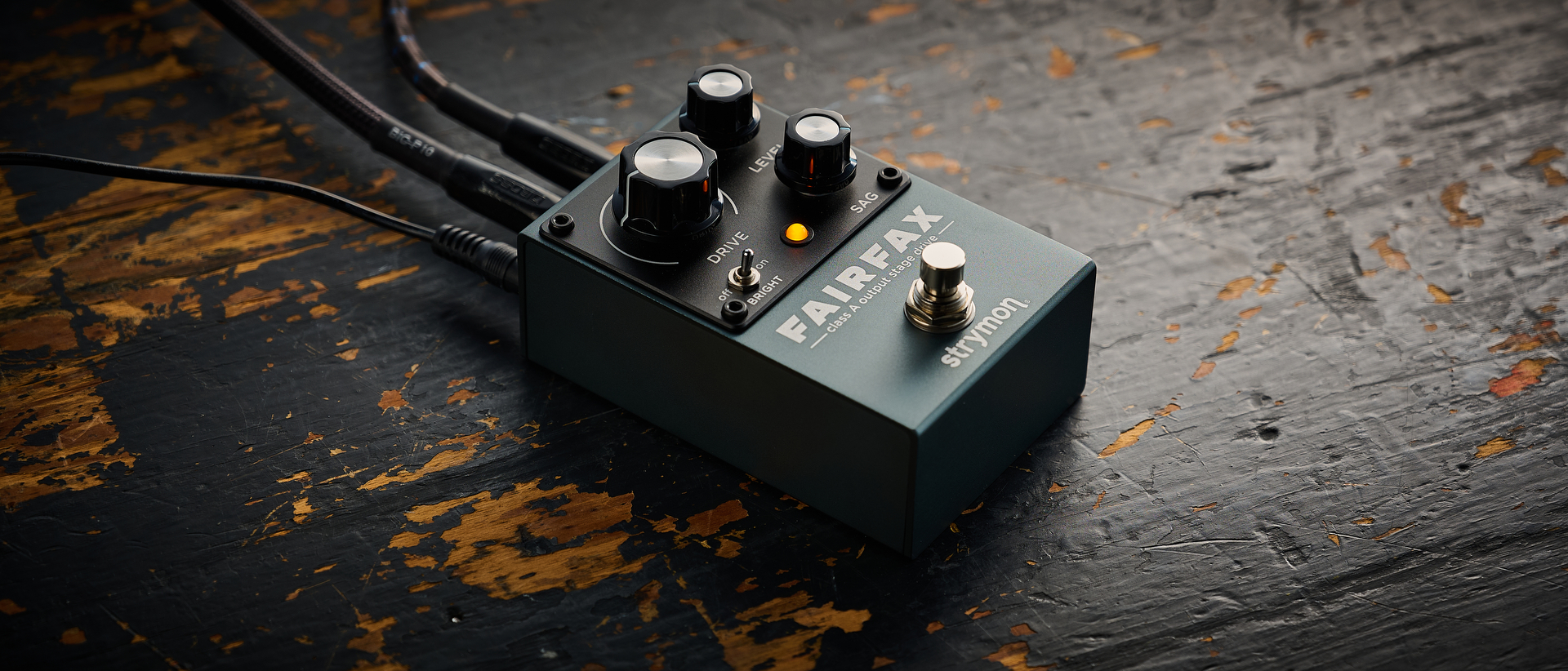Getting Ready to Record: The Do's and Don'ts
All the latest guitar news, interviews, lessons, reviews, deals and more, direct to your inbox!
You are now subscribed
Your newsletter sign-up was successful

Hey, all fellow guitar nerds/guitar geeks, my name is Jake Dreyer and here is my first column for GuitarWorld.com.
First off, just a little background about myself. I am a 19-year-old guitarist from Panama City Beach, Florida, who did the most cliché thing a young inspiring guitarist can do: I moved out west to Los Angeles to attend Musicians Institute.
During my high school years, I spent WAY too much time in my room with a metronome practicing Paul Gilbert/Jason Becker licks, which subsequently caused me to lose all social contact and any hope of having a girlfriend. During that time, I was fortunate enough to begin taking lessons from guitar giants and all-around great guys like Chris Broderick, Dave Shankle and Terry Syrek.
In July, I was honored to have joined Jag Panzer -- although, only for like a weekend before the band split up (more on this in a future article).
I recently worked with Neil Turbin (original Lead singer of Anthrax) in his band DeathRiders, and within the past week I landed a gig as a touring guitarist in another heavy metal band that is about to embark on a badass tour (which, I believe is sponsored by Guitar World!). I will let that be known as soon as I can. Finally in May I released my first instrumental wankfest solo CD titled In the Shadows of Madness, which features Adam Sagan (ex-Into Eternity) on drums and Noah Martin (Arsis) on bass.
OK, enough about me. What I really want to talk about in this first article is recording! Now, I cannot talk about actual recording techniques to save my life. That is a whole other art that I left up to the producer JJ Crews. What I can talk about is some stuff that as a guitar player I have learned about working in a studio.
My main genre is (insert sub-genre here) metal. Even if you are a non-head-banger, hopefully some of these tips will still be of interest.
All the latest guitar news, interviews, lessons, reviews, deals and more, direct to your inbox!
The first tip I have is about being prepared. This is a pretty broad topic that can really be stretched, but I will just talk about a few guitar things that really help out in making the recording process run smoother and less stressful.
The first tip I have is always practice with a click. Hopefully the band you're recording with is tracking to a click. It is just my opinion, but I always find this makes a world of difference in the “tightness” department. Some will disagree, but even if your band is trying to go for that '70s prog-rock mega-song that is 18 minutes of fluctuating tempos and time signatures and you're thinking, “Yeah, like I am going to build a click track to this."
No one’s blaming you! So if you find yourself in the situation that the drummer does not track to a click, you can still practice all your parts to a metronome on your own time. This will still do wonders when it comes time to track. Not only will it help you cement your parts and in turn make your guitar tracks tighter, but in my personal experience I have found that recording with a click track or practicing with a click will make tracking go by so much quicker. Your producer and engineer will thank you in return!
Ok, so since were still on the topic of being prepared another sub topic I would like to dive into is soloing. Now keep in mind this is just my opinion on this subject, but it is something I am sure every guitarist has to face when they come into track.
Many guys, myself included, are so stoked on recording that we forget about the solo until it comes times to track. What happens here, you ask? This famous line, “I am just going to improv it, man." Alright, now here is where I might make enemies.
Unless you are really, really good at improv and have been doing it for a while or just somehow possess Jeff Beck's amazing improvisation skills, do not be that guy. No doubt, some of the best solos have been improvised on the spot and have come out beyond killer.
"So how do I know if I am good at improv?” you ask. Try this exercise out: record the rhythm you will be soloing over with the exact amount of bars as is in the song. Now pretend you are at the studio recording your lead. Set up another guitar track so that you can record your solo over the top. Record yourself improvising three different solos over the rhythm. Listen back. If they suck, start writing a solo or at least work it out enough to where you know where you will want to go with it (You will be happy with yourself in the end.)
On the other side of the coin, if you are digging it then go kill it in the studio! Now I was not born with Marty Friedman’s improv skills. To this day I still work out all my solos before laying down any leads. It might take some more hours of homework writing that solo, but take it from me, getting a copy of your CD and listening back to a solo that you think blows is a horrible feeling. Try to avoid that at all cost!
Thanks for taking a moment to read through my thoughts. Hopefully these little tips sparked some interest. Love to hear from you the readers! If you have any questions or want to send me hate mail, drop me a line at jake@jakedreyer.com and be sure to check out jakedreyer.com for news, audio, video and all the usual crap you see on a website.
Take care,
Jake
